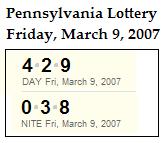The Logic of Dreams
From A Beautiful Mind–
“How could you,” began Mackey, “how could you, a mathematician, a man devoted to reason and logical proof…how could you believe that extraterrestrials are sending you messages? How could you believe that you are being recruited by aliens from outer space to save the world? How could you…?”
Nash looked up at last and fixed Mackey with an unblinking stare as cool and dispassionate as that of any bird or snake. “Because,” Nash said slowly in his soft, reasonable southern drawl, as if talking to himself, “the ideas I had about supernatural beings came to me the same way that my mathematical ideas did. So I took them seriously.”
Ideas:


A link in the 7/11 entry leads to a remark of Noel Gray on Plato’s Meno and “graphic austerity as the tool to bring to the surface, literally and figuratively, the inherent presence of geometry in the mind of the slave.”
Also Friday: an example of graphic austerity– indeed, Gray graphic austerity– in Log24:

(Related material: the Harvard Gazette of April 6, 2006, “Mathematician George W. Mackey, 90: Obituary“– “A memorial service will be held at Harvard’s Memorial Church on April 29 at 2 p.m.“)
Friday’s Pennsylvania evening number 038 tells two other parts of the story involving Mackey…
As Mackey himself might hope, the number may be regarded as a reference to the 38 impressive pages of Varadarajan’s “Mackey Memorial Lecture” (pdf).
More in the spirit of Nash, 38 may also be taken as a reference to Harvard’s old postal address, Cambridge 38, and to the year, 1938, that Mackey entered graduate study at Harvard, having completed his undergraduate studies at what is now Rice University.
Returning to the concept of graphic austerity, we may further simplify the already abstract chessboard figure above to obtain an illustration that has been called both “the field of reason” and “the Garden of Apollo” by an architect, John Outram, discussing his work at Mackey’s undergraduate alma mater:

Let us hope that Mackey,
a devotee of reason,
is now enjoying the company
of Apollo rather than that of
Tom O’Bedlam:

For John Nash on his birthday:
I know more than Apollo,
For oft when he lies sleeping
I see the stars at mortal wars
In the wounded welkin weeping.